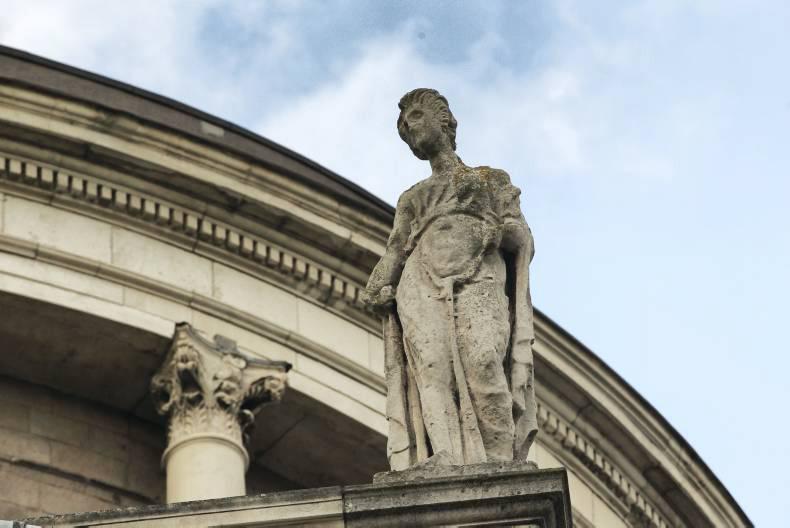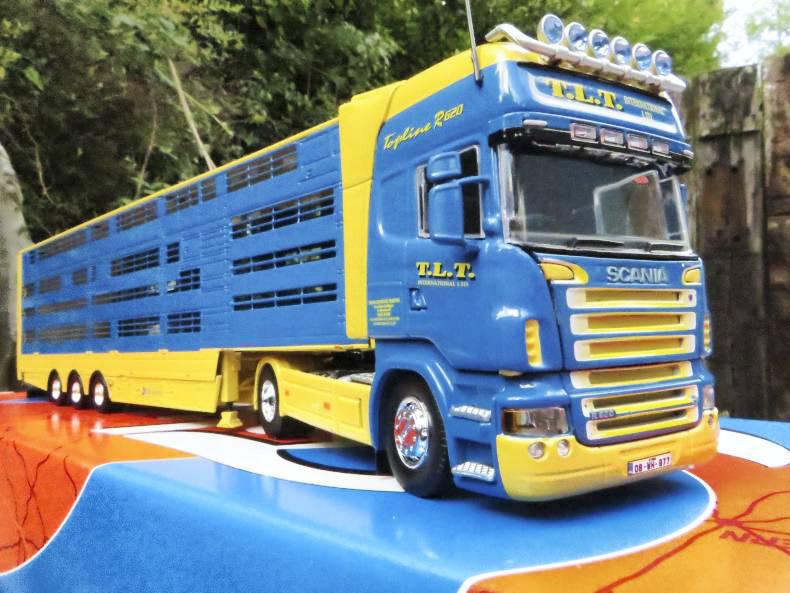Last week was a grim one for Co Westmeath livestock exporters Davide and Paolo Garavelli. Justice Robert Haughton delivered his 103-page judgement on the High Court case taken against them by HSBC Invoice Finance UK Limited (HIF). The judge found in favour of the bank. He ordered that the brothers must make payments totalling over €3m to the bank, from their personal assets.
A (relatively) small part of this total, €100,000 from each brother, is due because of personal guarantees each gave on the debts of their company, TLT International. The bigger part, over €2.9m, is due because of personal undertakings they gave to the bank that their company would correctly operate a finance agreement. They now face this big bill because the High Court found that TLT breached this agreement.
Marts
Justice Haughton’s judgement sets out the background and the flow of events.
TLT was incorporated in 1995 with brothers Paolo and Davide Garavelli acting as directors. The firm grew to be one of Europe’s largest specialist fleet operators, accounting for 70% of livestock exports from Ireland to Italy and Greece, over 90% of sheep exports, and opening up markets for Irish farmers. Turnover in recent years was €30m-€35m and TLT was a prominent buyer at Irish marts.
The brothers set standards for the industry, pioneering regulatory compliance in animal welfare, satellite tracking and other traceability regulations. Davide Garavelli also ran his own business – Coget. TLT sold livestock to Coget and this accounted for almost one-third of TLT turnover. TLT and Coget had some customers in common, but Coget tended to deal with smaller orders and smaller customers.
The nature of TLT’s business was such that considerable time elapsed between purchase of cattle in Ireland and payment by the continental buyer. TLT relied on term lending or on overdraft for working capital. These arrangements were not satisfactory and TLT entered into an agreement with HIF in January 2012.
Personal guarantees
Under the agreement, invoices would be raised by TLT within two weeks of animals being exported. These invoices were “notified” to HIF, which would make a pre-payment against the invoices the following day. These pre-payments were 70% of the value of the invoices and the money could be used for purchasing of cattle or other purposes.
In return, all payments from the buyers of livestock were to be paid into a trust account in HSBC bank. HIF earned a service charge of 0.35% of the notified value of each debt, subject to a minimum of €60,000 per annum.
Under the agreement, certain TLT invoices/debt was “non-notifiable”. Such invoices could not be used to generate pre-payments and customer payments on such invoices could be banked elsewhere. Debt owed by Coget to TLT was non-notifiable.
The detailed agreement was drawn up between HIF and the company TLT. But in addition the Garavellis gave personal guarantees of up to €100,000 on the debts of TLT to HIF. The two brothers, as directors of TLT, also signed up to personal undertakings on how the agreement would operate. There was no limit on the liability that could arise for breaches of these undertakings.
Horsemeat
The agreement operated satisfactorily in 2012 but in early 2013 trading conditions became difficult for TLT because of the horsemeat scandal. Delays in payments to TLT by its customers led to HIF imposing restrictions on pre-payments. The last one was made in September 2013.
That month, TLT started repossessing from its European customers sheep and cattle in respect of which payment was (allegedly) overdue. According to the judgement, repossessed stock was resold to non-notifiable customers, the bulk of it to Coget. Payments from these customers were not payable into the trust account and they were paid into other accounts. This meant this money was beyond the reach of HIF. The payments into those accounts enabled TLT to continue to buy cattle and to trade. These repossessions and resales increased in volume in October 2013 and their effect was to cancel out a large amount of the TLT debt that HIF claimed was its property under the agreement. This led to HIF taking action in November 2013.
HIF informed TLT that it was going to exercise its right of recourse on all outstanding debts, ie it demanded payment of the €2.9m debt then due.It appointed Gearoid Costelloe as receiver to TLT. It started High Court proceedings against the Garavelli brothers themselves, claiming they had breached the personal undertakings on how TLT would operate the agreement. It sought to recover the €2.9m owed by TLT from them, personally.It also sought payment of the two €100,000 guarantees on the debts of TLT on foot of breach of undertakings. Evidence was given over 15 days, ending on 29 January 2015. In his judgement, Justice Haughton said that the Garavellis did not raise substantive arguments against liability for the two €100,000 guarantees. But they denied they were liable under their undertakings for alleged breaches of the agreement.
Last week was a grim one for Co Westmeath livestock exporters Davide and Paolo Garavelli. Justice Robert Haughton delivered his 103-page judgement on the High Court case taken against them by HSBC Invoice Finance UK Limited (HIF). The judge found in favour of the bank. He ordered that the brothers must make payments totalling over €3m to the bank, from their personal assets.
A (relatively) small part of this total, €100,000 from each brother, is due because of personal guarantees each gave on the debts of their company, TLT International. The bigger part, over €2.9m, is due because of personal undertakings they gave to the bank that their company would correctly operate a finance agreement. They now face this big bill because the High Court found that TLT breached this agreement.
Marts
Justice Haughton’s judgement sets out the background and the flow of events.
TLT was incorporated in 1995 with brothers Paolo and Davide Garavelli acting as directors. The firm grew to be one of Europe’s largest specialist fleet operators, accounting for 70% of livestock exports from Ireland to Italy and Greece, over 90% of sheep exports, and opening up markets for Irish farmers. Turnover in recent years was €30m-€35m and TLT was a prominent buyer at Irish marts.
The brothers set standards for the industry, pioneering regulatory compliance in animal welfare, satellite tracking and other traceability regulations. Davide Garavelli also ran his own business – Coget. TLT sold livestock to Coget and this accounted for almost one-third of TLT turnover. TLT and Coget had some customers in common, but Coget tended to deal with smaller orders and smaller customers.
The nature of TLT’s business was such that considerable time elapsed between purchase of cattle in Ireland and payment by the continental buyer. TLT relied on term lending or on overdraft for working capital. These arrangements were not satisfactory and TLT entered into an agreement with HIF in January 2012.
Personal guarantees
Under the agreement, invoices would be raised by TLT within two weeks of animals being exported. These invoices were “notified” to HIF, which would make a pre-payment against the invoices the following day. These pre-payments were 70% of the value of the invoices and the money could be used for purchasing of cattle or other purposes.
In return, all payments from the buyers of livestock were to be paid into a trust account in HSBC bank. HIF earned a service charge of 0.35% of the notified value of each debt, subject to a minimum of €60,000 per annum.
Under the agreement, certain TLT invoices/debt was “non-notifiable”. Such invoices could not be used to generate pre-payments and customer payments on such invoices could be banked elsewhere. Debt owed by Coget to TLT was non-notifiable.
The detailed agreement was drawn up between HIF and the company TLT. But in addition the Garavellis gave personal guarantees of up to €100,000 on the debts of TLT to HIF. The two brothers, as directors of TLT, also signed up to personal undertakings on how the agreement would operate. There was no limit on the liability that could arise for breaches of these undertakings.
Horsemeat
The agreement operated satisfactorily in 2012 but in early 2013 trading conditions became difficult for TLT because of the horsemeat scandal. Delays in payments to TLT by its customers led to HIF imposing restrictions on pre-payments. The last one was made in September 2013.
That month, TLT started repossessing from its European customers sheep and cattle in respect of which payment was (allegedly) overdue. According to the judgement, repossessed stock was resold to non-notifiable customers, the bulk of it to Coget. Payments from these customers were not payable into the trust account and they were paid into other accounts. This meant this money was beyond the reach of HIF. The payments into those accounts enabled TLT to continue to buy cattle and to trade. These repossessions and resales increased in volume in October 2013 and their effect was to cancel out a large amount of the TLT debt that HIF claimed was its property under the agreement. This led to HIF taking action in November 2013.
HIF informed TLT that it was going to exercise its right of recourse on all outstanding debts, ie it demanded payment of the €2.9m debt then due.It appointed Gearoid Costelloe as receiver to TLT. It started High Court proceedings against the Garavelli brothers themselves, claiming they had breached the personal undertakings on how TLT would operate the agreement. It sought to recover the €2.9m owed by TLT from them, personally.It also sought payment of the two €100,000 guarantees on the debts of TLT on foot of breach of undertakings. Evidence was given over 15 days, ending on 29 January 2015. In his judgement, Justice Haughton said that the Garavellis did not raise substantive arguments against liability for the two €100,000 guarantees. But they denied they were liable under their undertakings for alleged breaches of the agreement.






 This is a subscriber-only article
This is a subscriber-only article











SHARING OPTIONS: